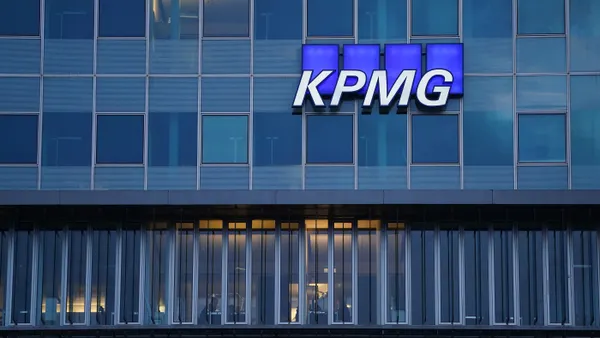Dive Brief:
-
The attorney general of West Virginia criticized plans by Allison Herren Lee, acting chair at the Securities and Exchange Commission (SEC), to require corporate statements on environmental, social and governance [ESG] issues, threatening litigation to stop the agency from embarking on an “unprecedented and dangerous course.”
-
“If the commission proceeds down this pathway, states and other interested stakeholders will not hesitate to go to court to oppose a federal regulation compelling speech in violation of the First Amendment,” West Virginia Attorney General Patrick Morrisey said in a letter to Lee.
-
The SEC should focus on its mission of requiring corporate disclosure “on matters that are material to future financial performance — not statements on issues that drive a political agenda,” Morrisey said.
Dive Insight:
The SEC has focused more on ESG issues throughout its oversight and operations since President Biden took office in January.
Morrisey referred to a March 15 speech in which Lee said companies should disclose political donations so that investors can gauge adherence to environmental, social and governance (ESG) principles.
“Political disclosure is key to any discussion of sustainability,” Lee said, adding that many companies that made carbon-neutral pledges “have donated substantial sums to candidates with climate voting records inconsistent with such statements.”
Investors should be able to assess the follow-through by companies that have pledged to alter political spending in response to protests against racial injustice, Lee said, noting that the SEC is currently barred from finalizing a rule on political donations disclosure.
“Going beyond requiring companies that disclose information that is material to future financial performance will unavoidably politicize the commission, detracting and distracting from other work,” Morrisey said. “Private competition for customers and investors already leads companies to issue statements on a wide variety of matters of public interest without government compulsion.”
Mandating disclosure is one of many new ESG initiatives by the SEC. The Division of Examinations mentioned climate-related risks first in its description of priorities for 2021.
The SEC will also examine proxy voting practices “to ensure voting aligns with investors’ best interests and expectations” and companies’ “business continuity plans in light of intensifying physical risks associated with climate change,” Lee said on March 3.
The Enforcement Division this month announced the creation of a Climate and ESG Task Force made up of 22 members from SEC headquarters, including the Office of the Whistleblower, as well as regional offices and “specialized units” within the division.
Lee in her March 15 remarks said she sought public comment on climate disclosure. “It’s time to move from the question of ‘if’ to the more difficult question of ‘how’ we obtain disclosure on climate,” she said, advocating progress “toward a comprehensive ESG disclosure framework.”
Some companies that forgo ESG reports risk facing higher costs of capital, according to John Coates, acting director for the Division of Corporation Finance.
Many ESG-related issues are similar to risks that evolved from “invisible to visible to extremely clear, and clearly financial,” Coates said in a March 11 statement, noting how asbestos hazards eventually became an essential topic for company disclosure.
Recent SEC announcements “appear to presage major changes in longstanding practices on disclosure and enforcement matters,” Sen. Patrick Toomey of Pennsylvania, the senior Republican on the Senate Banking Committee, said in a letter to Lee. “Such changes would be premature.”
“It is imperative that the SEC provide fair notice and fully comply with the Administrative Procedure Act if it is going to impose new requirements,” Toomey said. “The SEC also should not use enforcement actions as a backdoor for imposing new regulations on ESG and climate change issues.”














